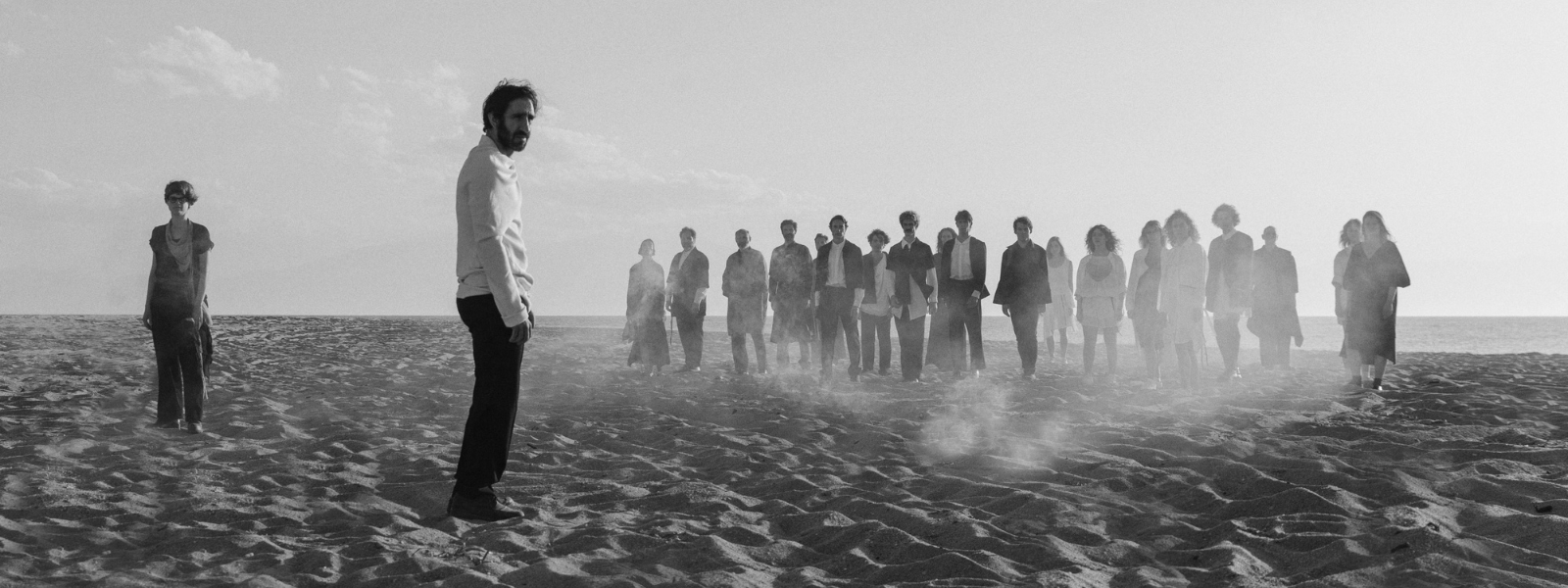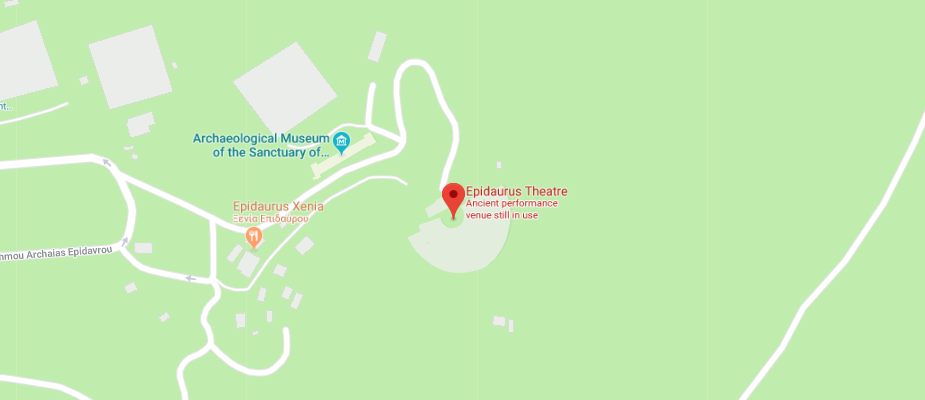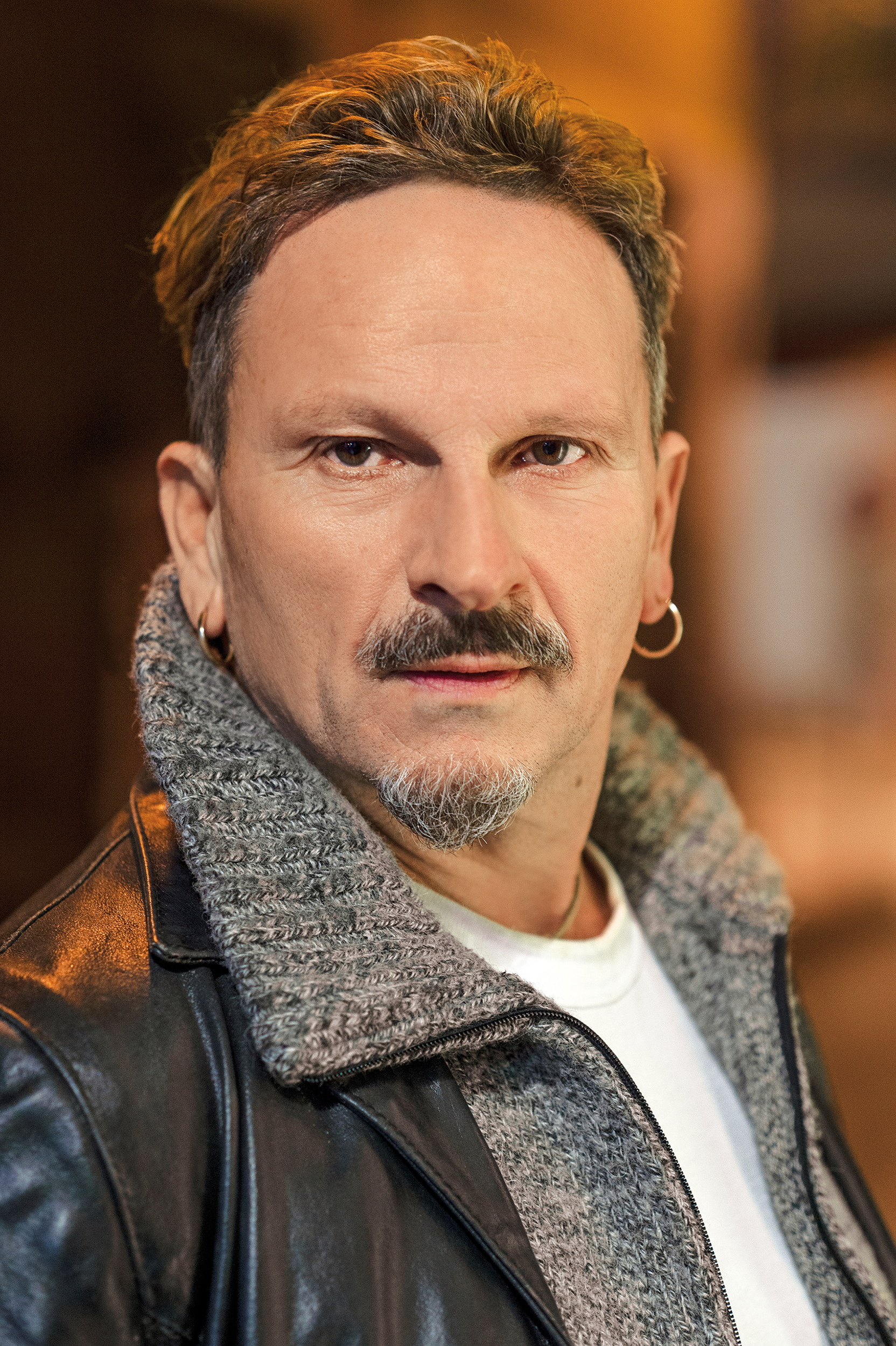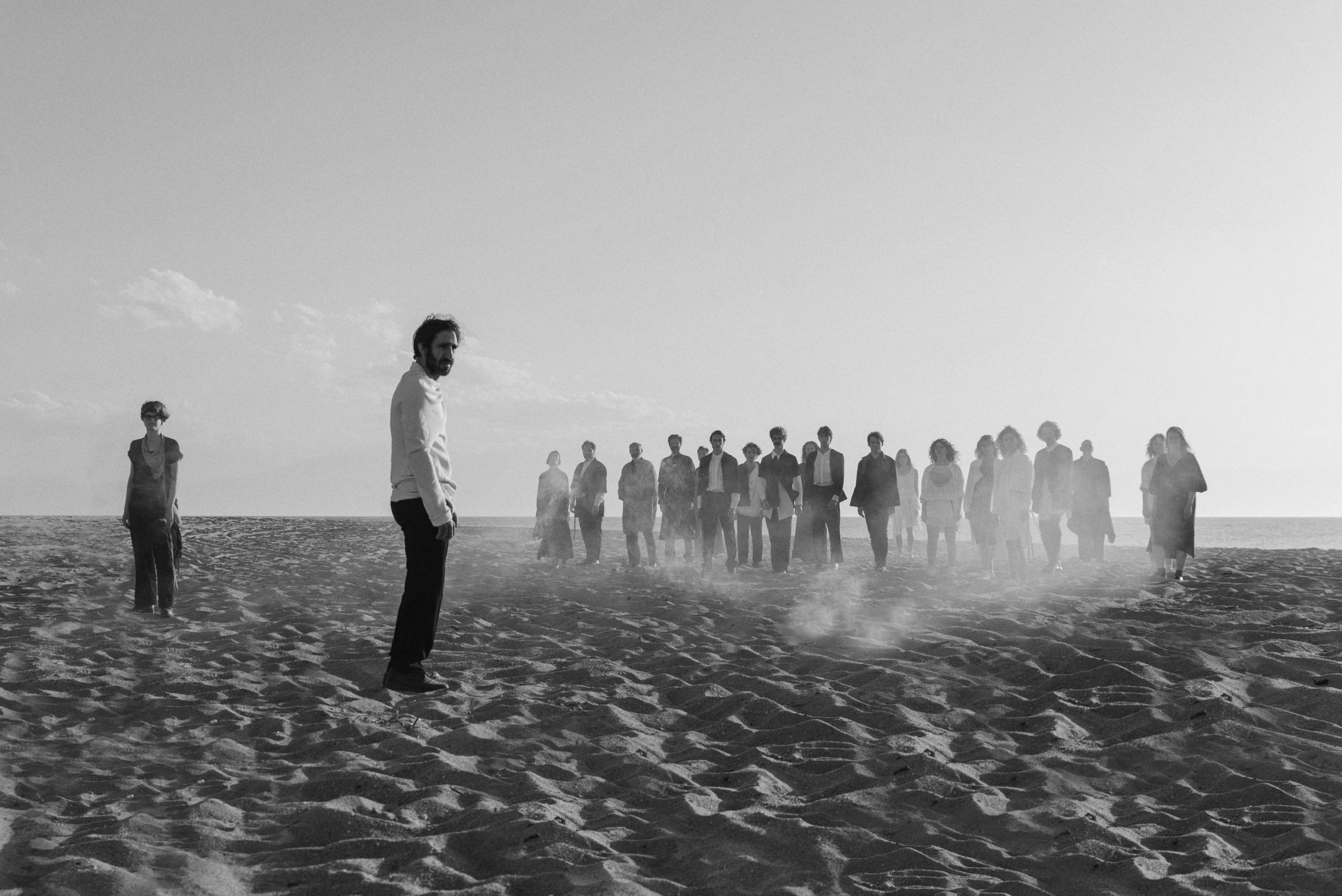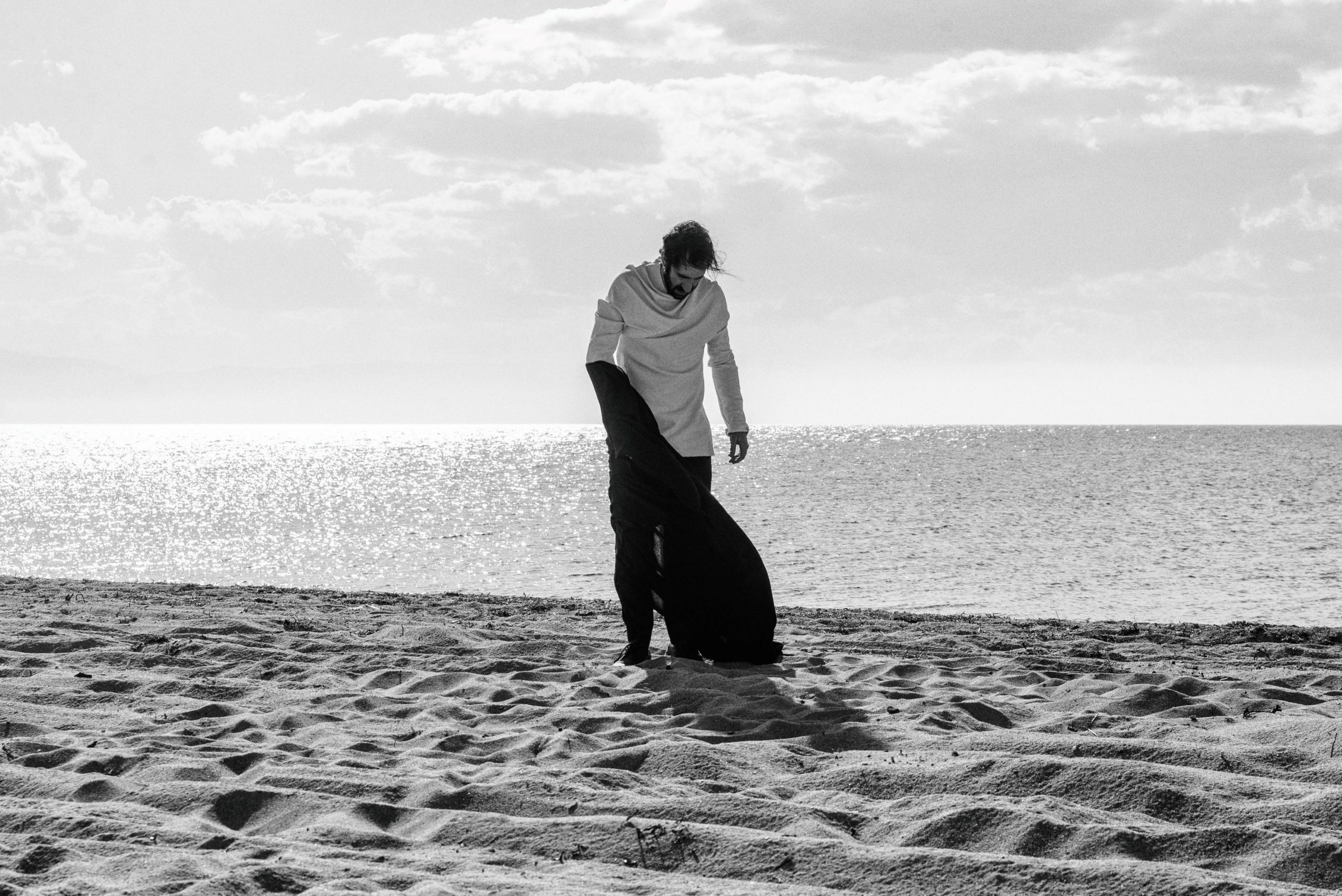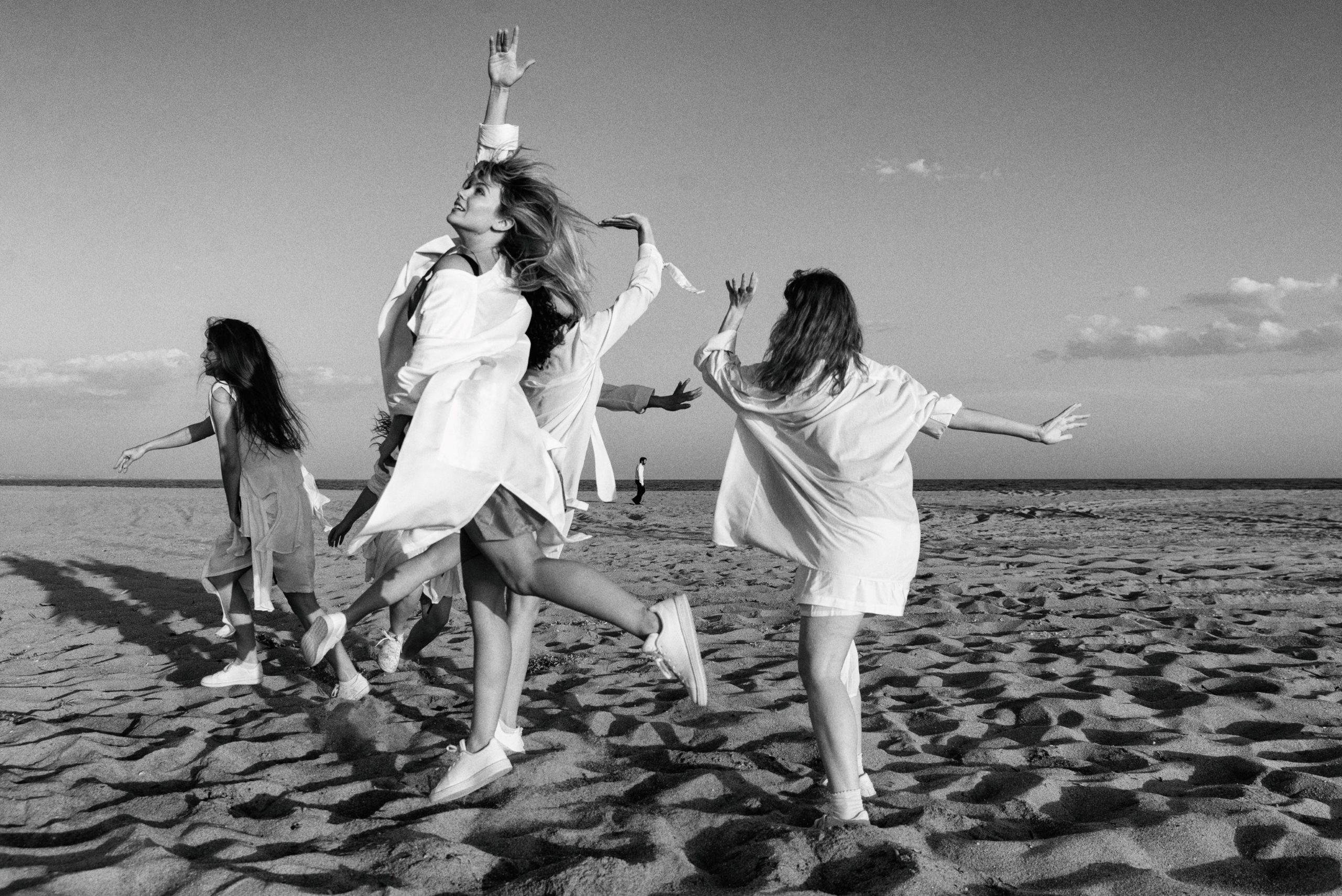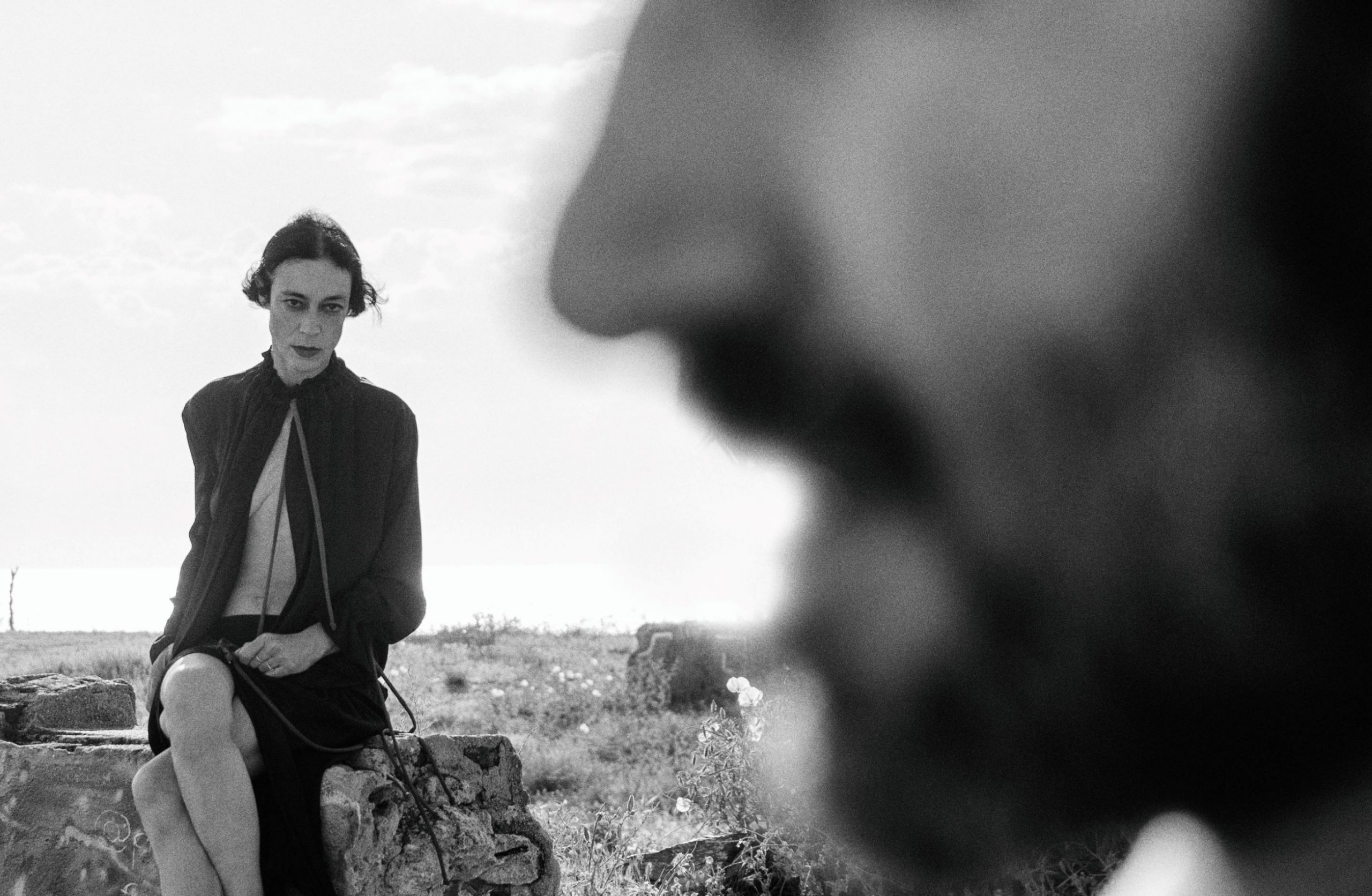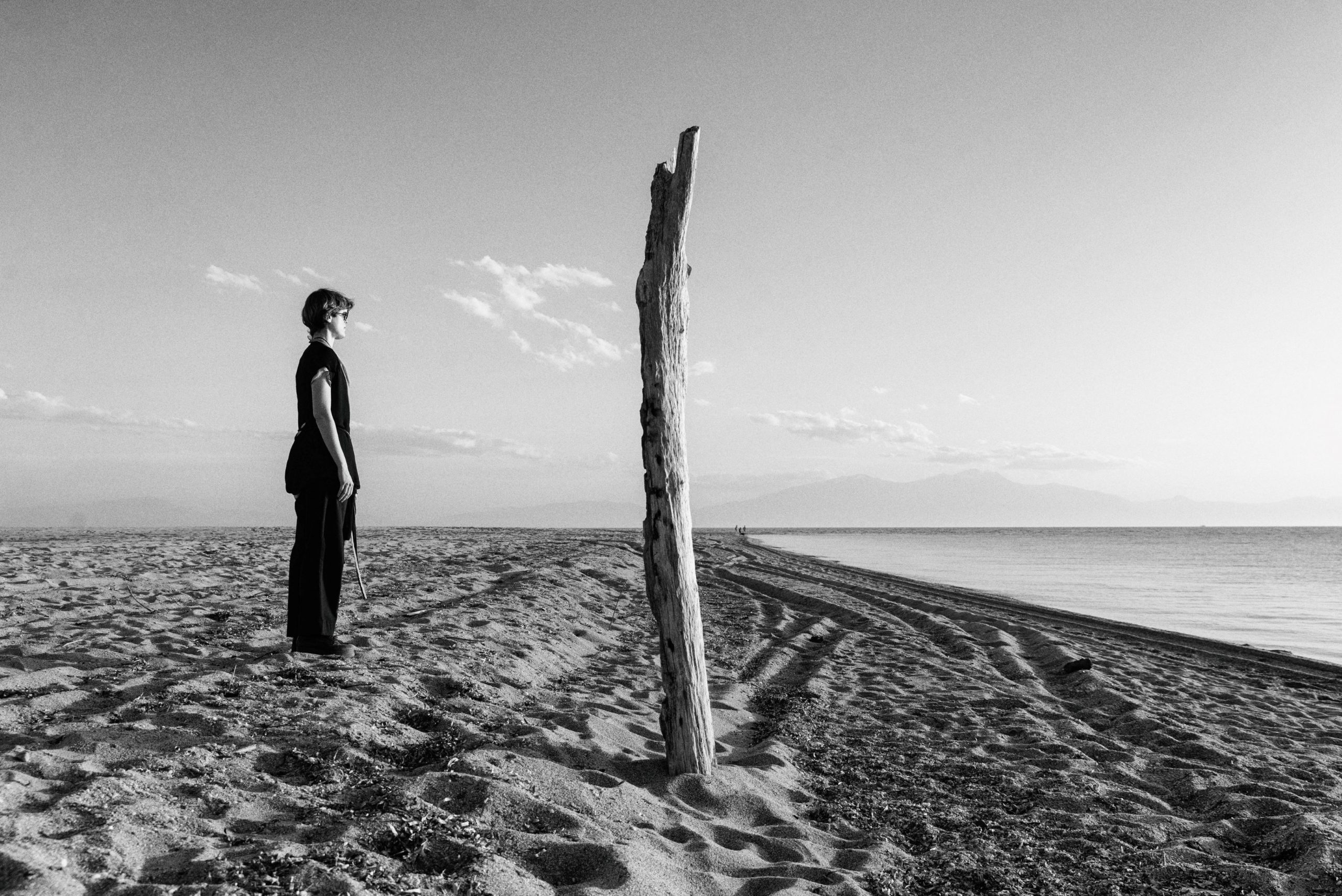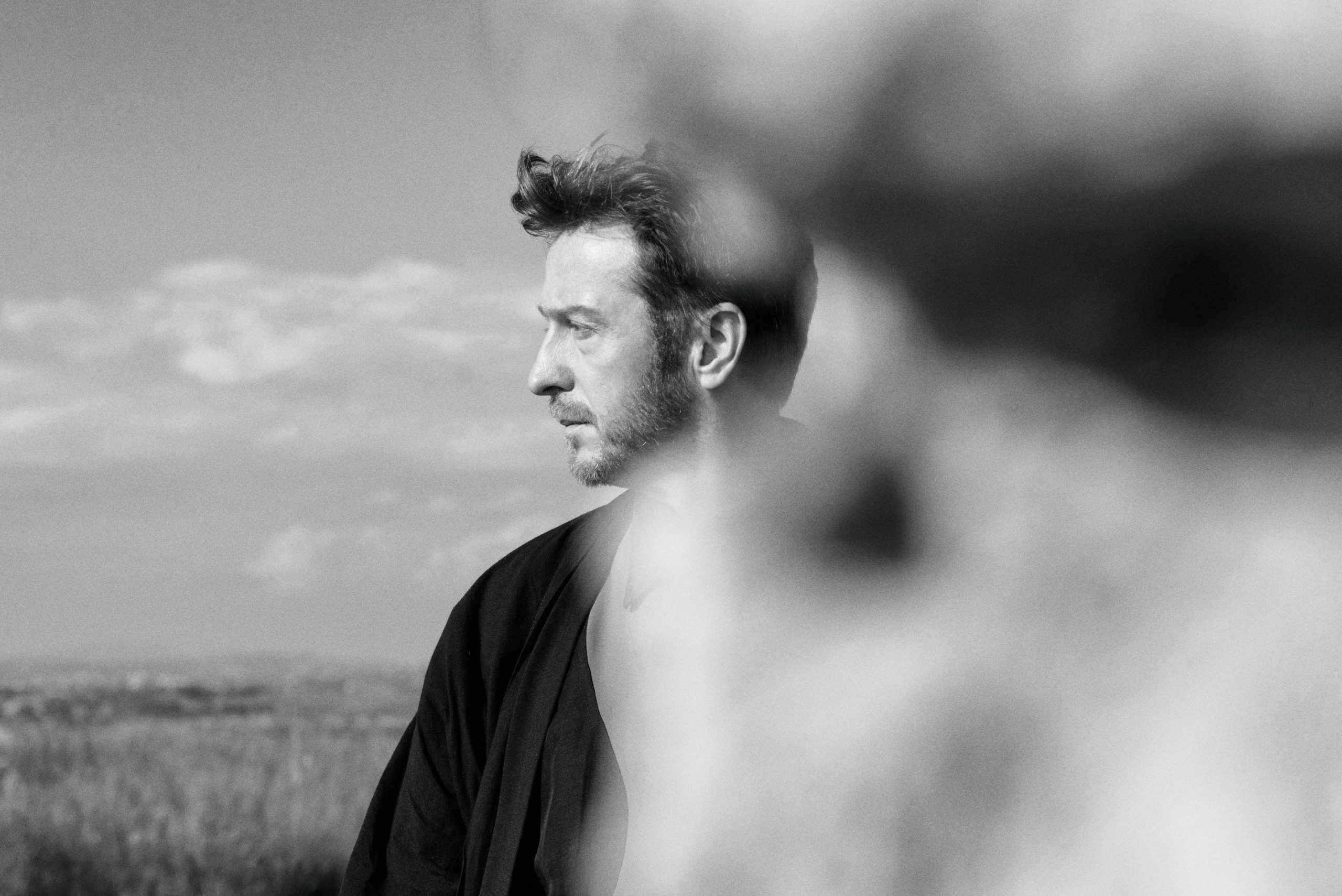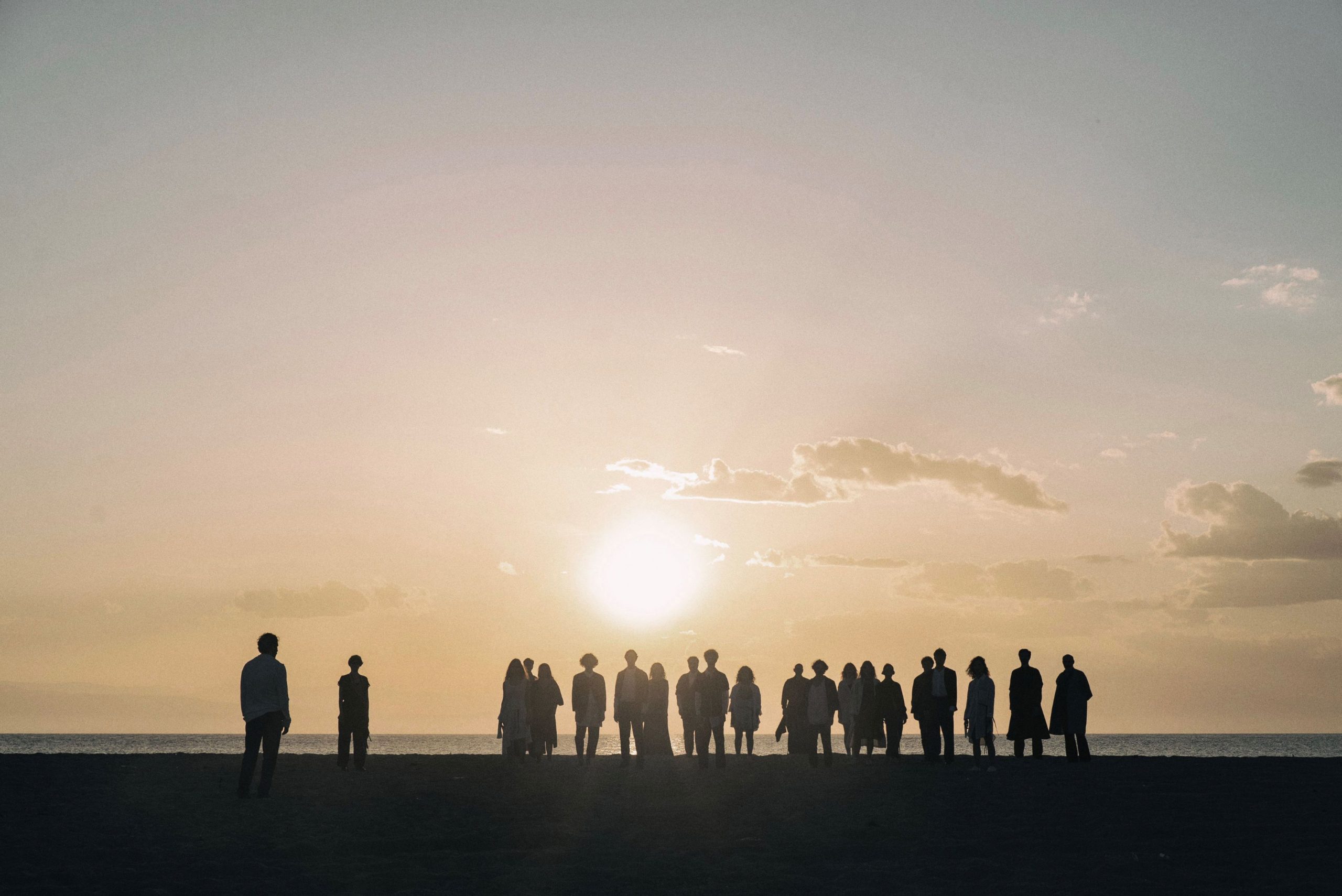“Alcinous, majesty, shining among your island people,
what a fine thing it is to listen to such a bard
as we have here—the man sings like a god.
The crown of life, I’d say. There’s nothing better
than when deep joy holds sway throughout the realm
and banqueters up and down the palace sit in ranks,
enthralled to hear the bard, and before them all, the tables
heaped with bread and meats, and drawing wine from a mixing bowl
the steward makes his rounds and keeps the winecups flowing.
This, to my mind, is the best that life can offer.
(Rhapsody ι’ 2-11, translated by Robert Fagles)
In the afterglow of two performances that were destined to linger in memory,
NEKYIA—presented with the Japanese theatre troupe NOH in 2015—and Sophocles’ Trackers in 2021, Michail Marmarinos revisits the Ancient Theatre of Epidaurus with yet another riveting dramaturgical proposal. Ηere, he orchestrates a return to the sources through a journey to three rhapsodies of the Homeric epic, confirming once more that the endless mystery of oral Storytelling (the cavernous mystery of Theatre itself) can still thrillingly propel us “to where history still happens”.
* The additional excerpts from the Iliad used in the performance’s dramaturgy are taken from the translation by D. N. Maronitis (Agra Publications, 2012), while for the excerpts from Virgil’s Aeneid, the translation by Theodoros Papangelis (MIET Publications, 2018) was used.
Furthermore, fragments from Quintus of Smyrna's Posthomerica, Book XII, are included in a special translation by Υiannis Doukas.
Performance in Greek with Greek and English surtitles
Translation Dimitris Maronitis
Direction Michail Marmarinos
Dramaturgy Michail Marmarinos, Eleni Moleski
Set design Yorgos Sapountzis
Costume design Eleftheria Arapoglou
Music Andys Skordis
Choreography Gloria Dorliguzzo
Lighting design Eleftheria Deko
Mask maker Martha Foka
First assistant to the director Eleni Moleski
Second assistant to the director Alexia Paramytha
Assistant to the set designer Katerina Zirpiadou
Assistant to the costume designer Ernesta Chatzilemonidou
Assistant to the choreographer Stella Mastorosteriou
Assistants to the lighting designer Nasia Lazou, Sotiris Roumeliotis
Music tutor Panagiotis Barlas
NTNG collaborator for set & costume design Danai Pana
Production management Eva Koumandraki
Photographs Mike Rafail (That Long Black Cloud)
Cast
Haris Fragoulis Stranger
US / PHAEACIANS
Klelia Andriolatou Nausicaa, Galateia Angeli Nymph, daughter of Dymas/Goddess Athena, Christina Bakastathi Nymph, Nausicaa’s same age friend, Giannis Charisis Echeneus, Leader and Advisor of the Phaeacians, Ilektra Goniadou Goddess Athena/Phaeacian woman, Nikolas Grammatikopoulos Clytoneus, Phaeacian youth, Kostis Kapellidis Amphialus/Goddess Athena/Herald/Ares/Phaeacian youth, Nikos Kapelios Leader and Advisor of the Phaeacians/Voice of Hephaestus, Nikos Koukas Laodamas, Phaeacian youth, Titos Makrygiannis Thoon, Phaeacian youth, Erato Maria Mandalenaki Nymph, Nausicaa’s same age friend, Clio-Danae Othonaiou Goddess Athena/Phaeacian woman, Christos Papadimitriou Alcinous, Stella Papanikolaou Nymph, Nausicaa’s same age friend, Nektarios Theodorou Elatreus, Leader and Advisor of the Phaeacians, Fotini Timotheou Eurymedousa, Phaeacian woman, Giannis Tomazos Halius, Phaeacian youth, Elena Topalidou Arete, Giannis Varsos Euryalus, Phaeacian youth, Lenia Zafeiropoulou Blind Bard (Demodocus/Aphrodite)
Live music performance- cello Alba Lymtsiouli, Aliki Marda, Evi Kazantzi
TEXT ON THE BRONZE AGE
Everything that lives in the recesses of the Epic possesses a form, a status of personhood: horses speak and foretell, rivers act like sentient beings, and coincidence suggests the divine hand at play.
If, to current-day sensibility, the Dawn may simply be a natural phenomenon, for Homer, it is a personified manifestation. And so, we see it rising from its bed…
[…]
“Here, humans have not yet suffered the internal rift that will divide existence into mortal and immortal, rational and irrational. The Homeric person lives and acts as an unbroken unity, as a psychosomatic whole (unprecedented and unsurpassed in Western civilisation) without divisions"
(Kostis Papagiorgis,“The Homeric battle”, Kastaniotis editions)
Really, what do we remember from the epics?
To what extent could the Bronze Age–its Nostoi (homecomings) and spirituality, its brutality and ethos–ideally converse with us today, perhaps even shed a certain kind of light on our current shadows?
To what extent can that culture of Pudency, its relationship with Nature, with the gods, the divine and the miraculous, its treatment of the Stranger—or with that deep mystery of hospitality—still hold meaning for our world? For our own very own bewilderments?
A stranger—called “Οίος” by Homer, meaning “alone”—a human in tatters after his ultimate shipwreck, crushed by his unequal struggle with the sea, washed ashore...
(Really, does this image remind us of something familiar in the world today? Have we, by any chance, caught a glimpse of this scene in the present world around us?)
Here, on a foreign shore he did not choose, he was destined to seek and find anew
his body, his face, and his name.
For 1.263 verses, he remains unknown, faceless, a stranger, and only by his first tear—followed by a mournful, silent cry—begins a journey of “recognition.” Trying to honour him—a stranger is always a hint of divinity—to amuse his sufferings with Odes about heroes and gods, they are unaware that they are singing about his life...And when, through the dignity of tears, he asks—he, a stranger—for permission to continue the story himself—entering now, as a dramatis personae and an idol in the theatre of his life—the “recognition” will not take long to be unveiled.
Thanks to the dramaturgically extraordinary intrigue of the poet of Odyssey (almost unique in world repertoire), these tears have made him a spectator, a narrator/rhapsodist, a poet of his own life. Along with the “recognition,” he also retrieves his name...
[There is a simple and fundamental desire shared by humans: To travel from point A to point B. An odyssey—of external or internal geography (and how innumerable are also the cases of an inner odyssey for mortals)—could be considered every unintended complication or adventure of this route, determined by unintentional, unwanted, unexpected deviations of the road. And it is hard to find a mortal who has never, at least once in their life, been in a position that defines them as a stranger. Could it be that sympathy—the kind that the stage experience of the epic can generously offer us—act as a tender caress, an understanding of the suffering of the Other? The strange position of the foreigner, where—as History ardently teaches us— nothing guarantees that any of us will not find ourselves in the same position at a future sharp bend in the road…
The epic; it is the epic that taught us how to breathe.
Michail Marmarinos


